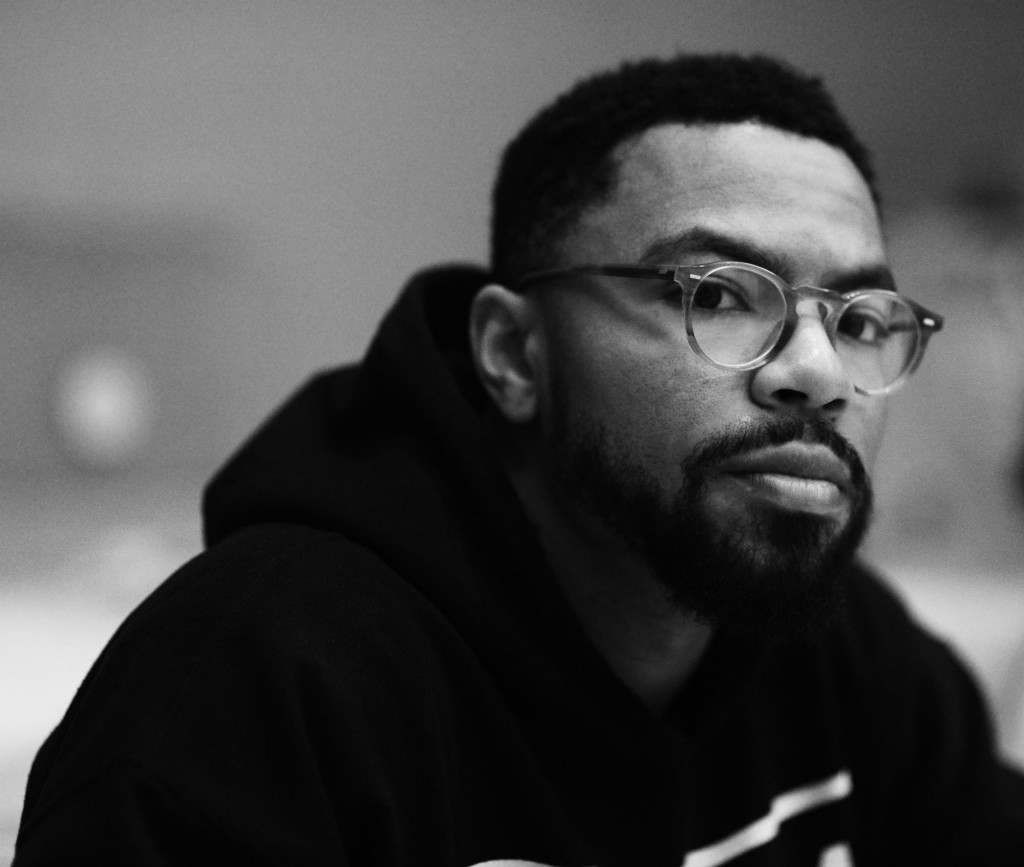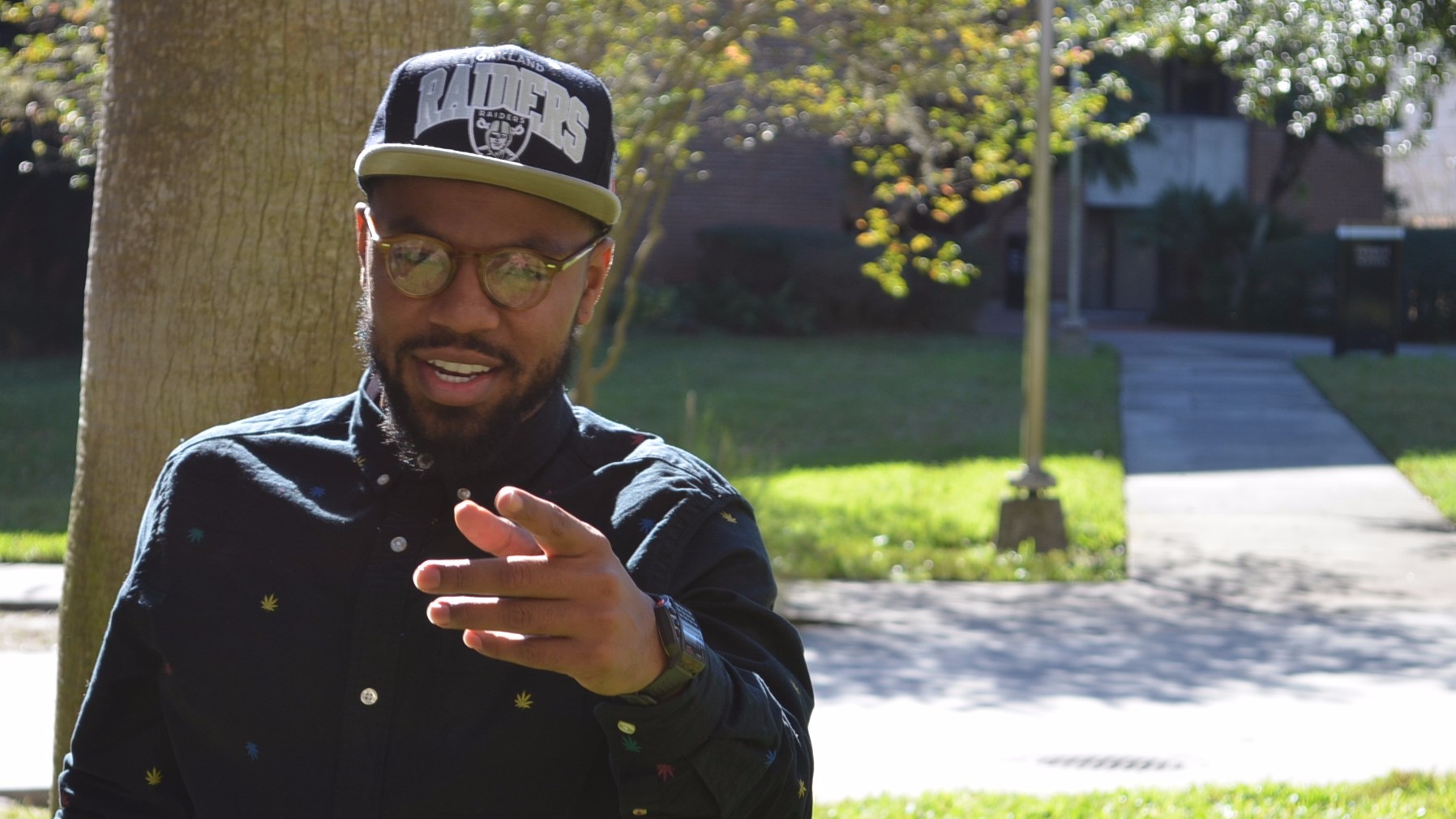Abernathy Man is a series that spotlights remarkable black men and the work they’re doing.

From: Chicago, Illinois
Occupation: Organizer, the Dream Defenders
Must Reads: The Autobiography of Malcolm X, as told to Alex Haley; Assata: An Autobiography by Assata Shakur; Pedagogy of the Oppressed by Paulo Freire; and All About Love by bell hooks.
When starting Abernathy, we were shocked at just how pervasive the subjugation of black women by black men in the movement is. We weren’t prepared for it, especially when black women were reticent to work with us after having been so mistreated by “well-intentioned and passionate” brothers. What is your perspective on what appears to be some really significant and threatening friction and in-fighting among those committed to the liberation of black people?
umi selah: So, I was actually telling my lady yesterday, patriarchy is probably one of the hardest things to de-program and reprogram for all of us, men and women alike. The effects of these ways of thinking on women, likely under-documented, are debilitating in every single way. And then I think, even less documented and just as debilitating, is its effect on men. Our society, in every single way, seeks to dehumanize people: Take away their humanity so that you can then treat them as a resource or something to extract from.
And that’s one of the core issues that we need to engage with in all of our organizing, and all of our conversation, and all of our activities. Our organization has experienced a whole lot of trouble with patriarchy. We have also made a lot of progress. I can tell you that three years ago, it seemed like there was a problem that we would never even want to talk about it. Never even have a good quality conversation about it without people being triggered, getting super-angry or getting super-defensive. Now, not only can we bring it up, our people, I think, feel more comfortable calling it out, though we don’t still have all the answers to how we’re going to fix it.
I think it should be a top priority, a center of any revolutionary movement to not only just elevate the leadership of women, but the entire perspective of what women go through today. I know that I will never be able to fully grasp it, but that should be the work of every organization. The organizations that we look up to have made huge strides in equalizing the perspectives, the lenses, the voices, the experience, and the leaderships, the leadership of women in their organizations. I mean, if our organization can’t do that, then we will never be what we want to be and we’ll never really espouse the beliefs that we say. I think we’re getting better, but you have to ask the women in our organization how well we’re doing.
Our society, in every single way, seeks to dehumanize people: Take away their humanity so that you can then treat them as a resource or something to extract from.
I think there is a wrong way to engage patriarchy in organizations and individuals and that’s when it replicates the dehumanization or division or sectarianism that patriarchy produces. I think that it just goes to show you how hard it is to deprogram that in each of us and each of our organizations.
I’m willing, and I think all of us—any man—I think it’s our jobs to really engage other brothers and other men in our conversation. Just to not think it’s white people’s jobs it’s your own community, just like with racism and capitalism and white supremacy. It is something that has to be done, not just in public, but really in the private spaces. Have we gotten better at that? No, I don’t think so. Because it’s still hard, still kind of uncomfortable to talk to cats who are used to being that way and I feel like they’re going to lose some street cred. But I think that the more we are challenging, courageously having the conversations, we will see the effects of it in the world.
Inherent in patriarchy is domination and power. For a man who grows up his whole life with the belief that their power and dominance depends on the oppression of women, the using of women, and the abusing of men who either act a different way or [who] come to the defense of women. It destroys their notion of their old power and that would sometimes be really debilitating for somebody after 29-30 years of being one way.
That’s why I think that it’s rooted in power, in dominance, a fear of losing power and dominance in a society that values some forms of power over other forms of power. For a lot of brothers, not only just black brothers, but a lot men in our society, that’s the understanding that we have of ourselves in this world. To eliminate that or blow all that up for some people is like hard. They have to learn the language, or even more importantly, learn the practices of thinking of women and of themselves in a completely different way.
Further reading:
